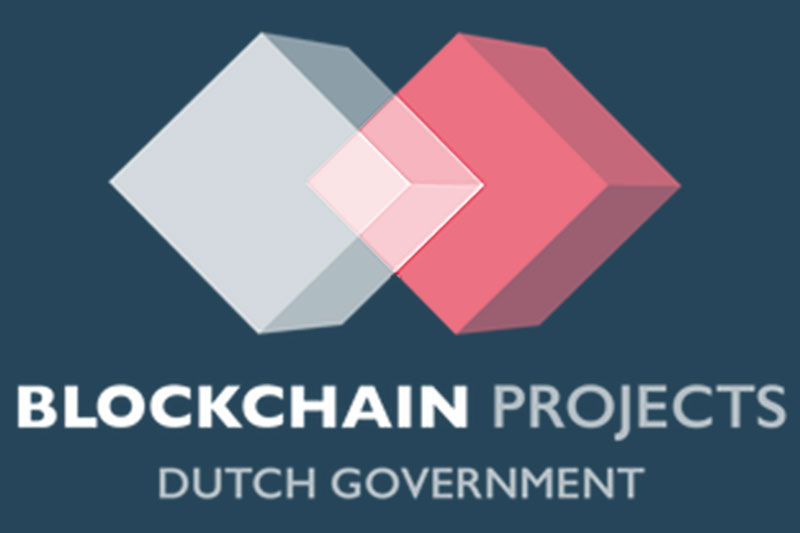
Many governments around the world today are
exploring how they can use blockchain technology to improve service delivery to
citizens. The inherent characteristics of blockchain, its decentralised,
distributed and transparent structure, the irreversibility and immutability of
the transactions recorded on it, and high trust promise numerous benefits for
public sector operations and efficiency.
The Dutch Government has also embarked on an
exploratory journey into the world of blockchain, and its potential
applications. On November 16, OpenGov attended a Blockchain Symposium in
Singapore, where Koen Lukas Hartog, Program manager of Blockchainpilots.nl presented an overview of blockchain projects in the Dutch Government.
Blockchainpilots.nl was launched by the Dutch Public Service in the beginning of 2016 in order to
establish the opportunities and threats of blockchain or distributed ledger
technology. These projects are aimed at
achieving two specific goals: 1) Enhance knowledge regarding blockchain within
the participating organisations; and 2) Develop use cases for (future)
application of blockchain technology.
The first round of pilot projects started in
May of the same year. The participating governmental organisations developed a
use case and/or a prototype in collaboration with one or more technical
experts. Initially, the idea was to do three or four projects and then go back
to the central government with the lessons learnt and recommendations on what
the next steps should be.
Instead, more than 30 pilots were concluded
during the time period from May 2016 to November 2017. A variety of topics and
processes were covered, such as Income Tax, (digital) identity, logistics,
autonomous vehicles and debt counselling.
Typically for each project, over the course of three to four months, Blockchainpilots.nl would get together with a team of government experts on a particular process,
and work towards a blockchain use case. The outcome would also include a
roadmap towards the development of a first prototype.

“We didn’t do this alone, because I think the
key ingredient of the success of our pilot projects is that we were able to
create a large network of technical experts,” Mr. Hartog (above) said.
University start-ups, IT companies and student networks were willing and able
to work together with the government team and to help them figure out what
blockchain is, what it could do for the organisation and the government as a
whole, as well as what the first prototype should look like.
Many of those informal partnerships during the
pilot projects are still in place, and have led to several working prototypes.
Examples of pilot projects
Mr. Hartog went on to discuss some of the
pilot projects.
The Dutch Tax Agency is using blockchain to
develop a better, more efficient, and more flexible system that wouldn’t
duplicate data for the chain of stakeholders
The Dutch Ministry of Infrastructure and Water
Management is currently developing a prototype for the process of transnational
transport of toxic waste. It is a highly administrative process that involves
several stakeholders who are duplicating work. They are planning to do a live
demo and are hoping to launch an actual working product afterwards.
The Ministry of Justice and Security has
explored several different blockchain projects at different agencies and
services belonging to the Ministry.
For example, the judicial information service
has looked into using blockchain for information sharing between stakeholders in
criminal trial proceedings. The blockchain could provide irrefutable evidence
to demonstrate who has access to what information at what moment, which could
help during the trial phase.
If the lawyer in the court falsely
tells the judge, that he/she has never seen this document before, and they need
time to read and study it, it could lead to rescheduling the trial and
additional costs incurred for the taxpayer. That kind of situation can be
avoided with the incorporation of blockchain.
The Central Judicial Collection Agency (CJIB)
has explored the use of blockchain for finding the ability of people to pay
fines. CJIB) is legally authorised to collect outstanding fines directly from
the bank account of Dutch residents. Agreements have been made with the banks
on efficient execution of this law.
If a person cannot their bills, then in most
cases, they would not be able to pay their government bills either. The problem
is no one within the government knows that the individual is going through some
problems like that. So, they will continue to send invoices or bills, that the
person won’t be able to pay, and the total the amount due keeps getting higher
and higher as penalties pile up. Because of privacy concerns information from
different governmental organisations cannot be shared and this ends up
amplifying people’s financial problems.
The agency has now come up with a solution where they can use smart contracts
and zero knowledge proof technology to find out if someone is unable to pay
their bills, without having access to all the personal data (a zero-knowledge proof or zero-knowledge protocol is a method
by which one party can prove to another party that a given statement is true,
without conveying any information apart from the fact that the statement is
indeed true). That enables the government to take the person’s inability to pay
the fine into account, without compromising the individual’s privacy.
Several pilot projects have been completed in
the field of healthcare. The team worked with the Dutch Healthcare Institute to
develop a working prototype of a blockchain-based health locker, which can keep
track of authorisations in the healthcare process. This means that if a patient
can could indicate through an app, who can take care of what activities, when
he or she is no longer able to do them, permanently or temporarily.
The team figured out that they could make it
work technically. But there were concerns over tis compatibility with the
existing legal framework.
So, the team connected the healthcare
institute with a tech-focused law firm, and together they worked on what is now
the first blockchain legal certificate. This means that the law firm will take
a look at the prototype, make an assessment, and will indicate at what point
the smart contract or the application doesn’t work in accordance with the law. Then
the prototype can be adjusted to comply with regulations (changing regulations
is a much longer process for obvious reasons).
In recent months, the team has been receiving
more and more requests for blockchain projects, which also involve other
emerging technologies. For instance, the team is working on a project to trial
whether an object in a public space, such as a streetlight, can be an
autonomous economic actor. It means that if the streetlight stops working, it
can automatically send out a request for a micro-job. The request for repair
can be taken up by an authorised supplier, and once the repair is completed,
the system will automatically take care of the payment as well. A prototype
streetlight is being developed.
In a subsequent presentation, Mr. Frans Rijkers (below),
Senior Adviser at the Dutch National Office for Identity Data talked digital
identity in the blockchain era. The Department has been working on prototypes
for a ‘self-sovereign’ digital identity.

There are multiple governments ministries and
agencies involved in dealing with identity, including the Ministry of the
Interior and Kingdom relations, Ministry of Foreign Affairs/ Embassies,
Ministry of Justice and local municipalities. The municipalities often act as
the front-end where people go to get passports or update the government about
changes in address etc.
Mr. Rijkers described the current system of
adding people to the population registry as ‘digital paper’. Existing paper
processes and certificates were digitised. But in today’s world, where citizens
are moving and conducting transactions not just around the country, but around
the world, the existing system is no longer adequate.
The idea behind the self-sovereign identity is
to create a digital identity that citizens can use everywhere, not just in the
Netherlands and not just for public services, but for all kinds of services
within and outside the Netherlands.
“We’re looking at a system that gives you a
digital identity that moves with you, that you can connect with your personal
data wherever you are,” Mr. Rijkers said.
To explain how the identity might work, Mr.
Rijkers gave the example of an individual buying alcoholic drinks. He/she has
to show proof that they are over 18 years old. The ID card will have all kinds
of data, including photograph, ID number, name, date of birth. But the only
thing the person at the sales counter needs is a yes or no answer to whether
the prospective buyer is over 18 years of age.
With the new self-sovereign identity, the person
can check in with their phone, the data comes from the civil registry and
returns a green or red (yes or no). Maybe the check-in could also be connected
with the payment, so that entire transaction from age verification to payment
happens in one step.
The onboarding has to be reliable and easy. So,
a prototype has been developed by the National Office for Identity Data, Idemia
and Tu
Delft, where in a person can go to a municipal
office and open an app developed in the prototype. The fingerprints and photograph
from the passport are read and matched against the local biometrics i.e. the
person’s actual fingerprint and photo.
Several use cases are being explored, such as designing
an entirely new pension system where pension funds, employers and employees all
keep their data in their own secure blockchains,
Another one is the granting of a loan from a
municipality for making homes more sustainable. This latter could potentially
be part of something much bigger, with residents having self-sovereign identity
living in a smart home with its own digital identity, which is connected into a
smart grid.
International
collaboration
During the course, particularly of the second round of pilots earlier this
year, two things happened. The first one was the realisation that a lot of the
projects have an international dimension
and require international collaboration. At the same time, there was
significant interest from abroad.
The team decided to invest more in
international collaboration because they saw that other countries were working
on similar projects, trying to fix similar problems. The team is also in touch
with the European Commission. Collaboration opportunities are also being
explored with the World Bank and United Nations.
At the bilateral level, the Netherlands and
Belgium are going to launch a book on all the Dutch and Belgian blockchain
projects that have currently been launched. They have also been in touch with
governments in Dubai and Estonia working on similar initiatives.
Mr. Hartog concluded his presentation expressing
hope for further collaborations with forward-thinking countries like Singapore,
cooperating in setting up projects, exhcnaging information and cross-testing
each other’s prototypes.
















